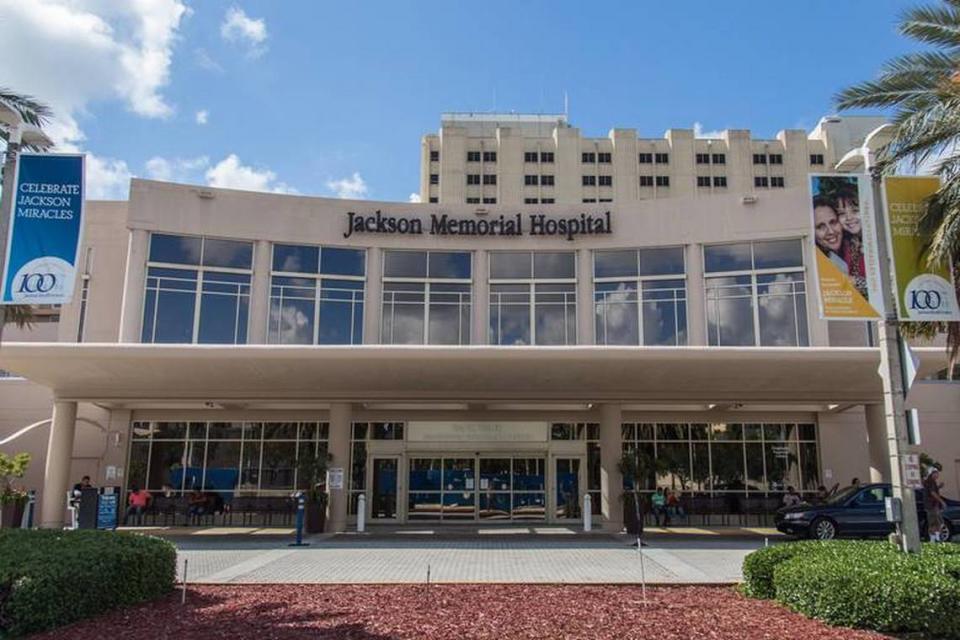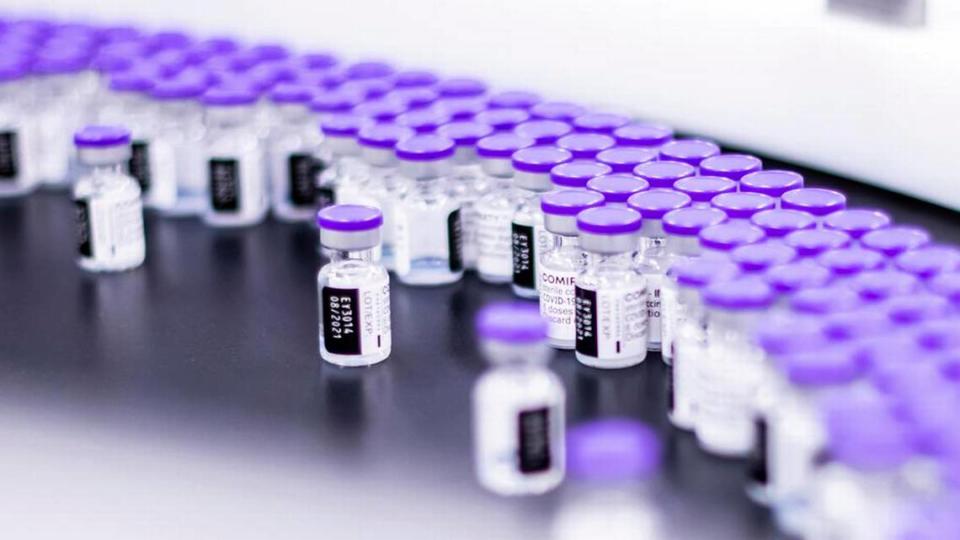‘A pandemic of the unvaccinated.’ Miami hospital urges patients, workers to get shots
Facing a resurgence of COVID-positive patients — and a stubborn reluctance to the vaccines among many Miami-Dade residents and even its own employees — leaders of Jackson Health System, the county’s public hospital, came out on Tuesday with a single-minded message: Get vaccinated.
“This is a pandemic of the unvaccinated,” Jackson Health CEO Carlos Migoya said during a video conference call with media.
On Tuesday, there were 143 COVID-positive patients at Jackson Health — a 117% increase over the 66 patients hospitalized just two weeks ago.
Dr. Lilian Abbo, an infectious disease specialist at Jackson Health, said 91% of COVID-positive patients are not vaccinated. In the intensive care units, she said, 95% of patients critically ill with the disease have not received a shot.
Abbo attributed the spike in new infections and hospitalizations to changes in behavior — “People acting like the pandemic is over,” she said. She also noted that the delta variant, a highly transmissible mutation of the virus that causes COVID-19, and so-called breakthrough cases among vaccinated persons also are fueling the rise.

The Centers for Disease Control and Prevention estimates that the delta variant has become the dominant strain in the United States, making up 83% of all new infections during the two weeks that ended July 17, the agency said Tuesday. In the Southeast, which includes Florida, the delta variant made up about 80% of all new infections during the same period.
Jackson Health is not sequencing viruses to identify the strain causing a surge in patient admissions for COVID but, Migoya said, “We believe the delta variant has a lot to do with this.”
Abbo said the delta variant is not only more transmissible, it also has a shorter incubation period and a higher viral load, which means that those who are infected shed more of the virus that causes COVID-19 and risk spreading the disease to others — whether they are vaccinated or not.
“People that are vaccinated are also testing positive and some of them are also developing symptoms,” she said, adding that only a small number of vaccinated persons have been hospitalized for COVID. Abbo emphasized that the vaccines work very well at preventing severe illness and death.
“I would say 95% percent of the people who are vaccinated are doing well,” she said. “I encourage everybody to wear your mask ... especially indoors and around people you don’t know.”
Though Jackson Health leaders said they are alarmed by the sudden spike in cases and hospitalizations, Migoya said the current wave is “nowhere close” to the flood of COVID-positive patients who nearly overwhelmed the county’s public hospital last summer.
But he wants to avoid a repeat, leading Jackson Health to suspend visitations at most of its facilities beginning Wednesday and to reinstate preventive measures, such as social distancing and universal masking in all non-clinical areas.

The most effective tool for stopping the surge, Migoya said, is one that many in Miami-Dade and even inside Jackson Health have refused to pick up — one of the three vaccines authorized for emergency use by the Food and Drug Administration, which have become widely available since the first shots were approved in December.
More than 1.8 million Miami-Dade residents — or about 75% of eligible individuals — had received at least one dose of the vaccine as of July 15, according to the Florida health department’s weekly COVID report. While one-quarter of eligible residents may not seem like a high number of unvaccinated individuals, Migoya emphasized that’s about 500,000 people.
Among Jackson Health’s nearly 13,000 employees, the vaccination rate is lower than Miami-Dade’s. Migoya said about 58% of Jackson Health employees have been vaccinated, a number that he acknowledged was “low.”
Migoya attributed the low rate to persistent rumors and misinformation about the vaccine.
“Jackson employees are no different than every person out in the street,” he said. “Everybody listens to rumors. Of course, being in the healthcare business they create even more rumors, which is part of the reason why the rate is so low, which is why we are pleading with people.”

Migoya said the current surge has persuaded some reluctant employees to get the shot. Jackson Health administrators are working to get even more employees vaccinated by using the same message they’re sending the community: The more people remain unvaccinated, the longer and more severe COVID surges will become.
“The peak and length of this surge will depend on the number of people who are not vaccinated,” Migoya said. “Every inch that we grow here will bring down that peak and will shorten the length.”
Abbo added that even as breakthrough infections gain more attention, the vaccines still provide strong protection against severe disease and death. Doctors and nurses can see the difference in patients today compared to a year ago.
“Vaccines work and the people who are vaccinated have antibodies protecting us from being critically ill, intubated and dying,” she said. “That’s really the difference from a year ago when everybody was coming in and getting very sick.”
Also unlike last year’s pandemic surge when most severely ill patients were older with underlying health conditions, the most recent rise in hospitalizations includes many patients in their 30s, 40s and 50s who are healthy.
Migoya said young and healthy patients can’t be treated with some of the newer COVID therapies developed since the pandemic began, such as monoclonal antibodies, because those medications are reserved for high-risk patients who are obese, pregnant or diagnosed with chronic kidney disease, diabetes or other medical conditions.
“It’s for sicker, older and overweight people,” he said.
That leaves prevention as the best medicine, and the most effective and safe way to stop COVID is with a vaccine, he said.
“It’s important for all the young, strong people to get vaccinated,” Migoya said, “equally as important as older people.”

